
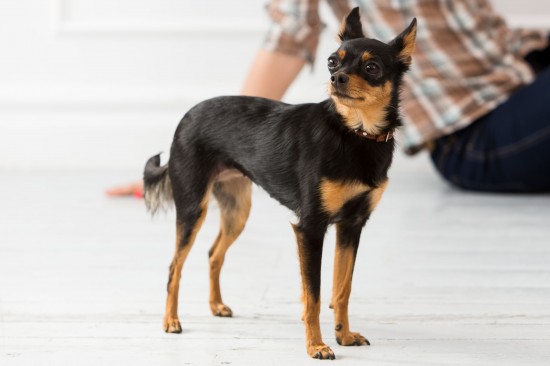
Providing you have the required permissions and understandings, keeping dogs in apartments is entirely possible, and even enjoyable. You just need to find the right breed and be able to give your new dog the time and attention it requires. Many small breeds of dogs have been known to live perfectly happily in apartments with their owners, and adapt to city living incredibly well. Even some large breeds can adapt to apartment living, providing the flat is large enough and they are exercised frequently. There are some important factors to consider in order to create the best scenario for doggy apartment dwellings.
First of all, size! Whilst practicality states that a smaller dog would cope better with apartment life, there are plenty of large and giant breeds of dogs that actually adapt perfectly well. People have been known that struggle more with a Chihuahua than a Great Dane in apartments; it all comes down to temperament. Obviously, the smaller and calmer breeds work best in apartments. They require less space. Larger breeds can enjoy smaller living spaces so long as their exercise needs are met. Greyhounds and Great Danes, for example, tend to be fairly placid and laid back if they are sufficiently exercised. They’ll probably take up an entire two-seater sofa, but they’ll be on it all day! Smaller breeds such as Maltese and Yorkshire Terriers are also well-suited to apartment life. They don’t bark as much as Chihuahuas, and tend to settle down once their exercise needs have been met.
It is important to consider factors such as barking when choosing a dog for apartment life. Excessive barking is a top complaint against apartment dog owners, and there are breeds that are more likely to bark than others. As previously mentioned, Chihuahuas. They are often picked as ideal apartment dwellers due to their size, but they are extremely vocal and have rather a nervous disposition. This combination leads to a larger number of neighbourly complaints! Boston Terriers and French Bulldogs can also make very good apartment dogs, though French Bulldogs require rather a lot of costly care.
Temperament is important. There are some breeds of dog that are known for their energy levels. Gun dogs such as Pointers and Weimeraners are notoriously bad for apartment life. Likewise very high energy breeds such as Dalmatians and Huskies should also not be kept in small spaces, but have been known to live quite happily in larger apartments. Most dogs can adjust to living in apartments, but it is hugely important that they receive sufficient exercise. An under-exercised dog or puppy can be extremely destructive, and there is very little that will remain unchewed!
There are lots of things you can do to maximise your apartment’s dog-friendliness. Ensuring that there is plenty of floor space is very important. Aside from giving your dog plenty of space to run around and play in, it is also great for finding storage and keeping things tidy. The fewer things to be knocked over the better, as even the best behaved dogs can accidentally wag a tail into a lovely vase or picture frame. It is important to keep valuables out of the way and up high.
You should also think about things such as lightness and darkness. Some apartments have very little natural light, and this can have a negative effect on your dog. Make sure your pup isn’t kept in darkness all day by investing in plenty of lights and keeping the curtains open. If you work during the day this is particularly important, and it can be rather depressing for your dog to be left, let alone left in darkness! Make sure you play with your dog when you are home, as this will also help his exercise needs.
When your dog will likely have to wait extended periods of time before being let outside to toilet, it is extremely important that you establish a routine. Set eating and drinking times are vital, as your dog will then learn when he can do his business outside, instead of on your favourite carpet! If you are getting a puppy, spend the time to properly train him. A well-trained dog is essential in an apartment, as boredom can often lead to mischievous behaviour. Crate training works particularly well in apartments, but even if you do not crate train, it is a good idea to invest in some baby gates to cordon off certain rooms that you don’t want puppy in, such as the kitchen or bathroom. This will help the training, as your puppy will learn which spaces are his and which are off limits.
With enough playtime and exercise, dogs in apartments can be a very happy possibility. Dogs require a great deal of time regardless of surroundings, but if you intend or do live in an apartment and are considering getting a dog, you should expect to put the time and effort in to making it an acceptable scenario. Whilst there are some breeds that seem to adapt to apartment life better than others, there will always be exceptions. There can be varying energy levels within a single litter, let alone different breeds, and you should be aware of this when purchasing your dog or puppy. Employing the help of a trainer will help a great deal, and if you work during the day, hire a dog walker. Apartment dogs need to get out and walk, and if he has plenty of walking and exercise he will live a happy and fulfilled life.
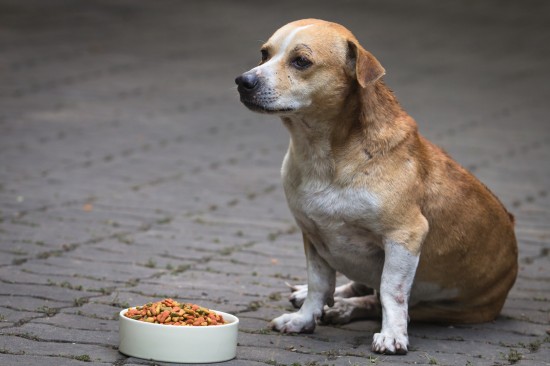 Why Are Some Dogs Never That Hungry?
Why Are Some Dogs Never That Hungry?
 Ten Ways In Which Canine Diet May Affect Behaviour
Ten Ways In Which Canine Diet May Affect Behaviour
 What Sort Of Veterinary Care Do Guinea Pigs Need?
What Sort Of Veterinary Care Do Guinea Pigs Need?
 The Five Most Expensive Dog Breeds To Insure
The Five Most Expensive Dog Breeds To Insure
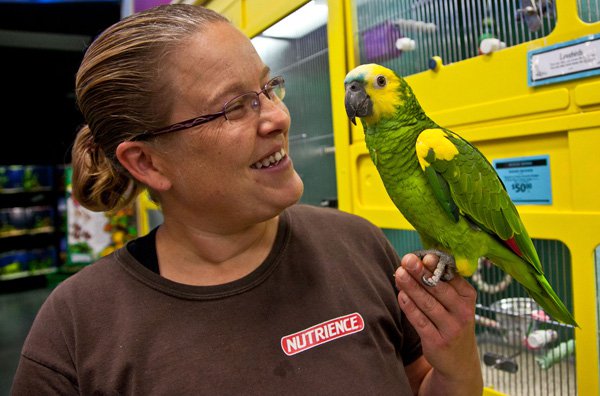 The Advantage of a Portable Dog Water Bottle Dispenser
The Advantage of a Portable Dog Water Bottle Dispenser
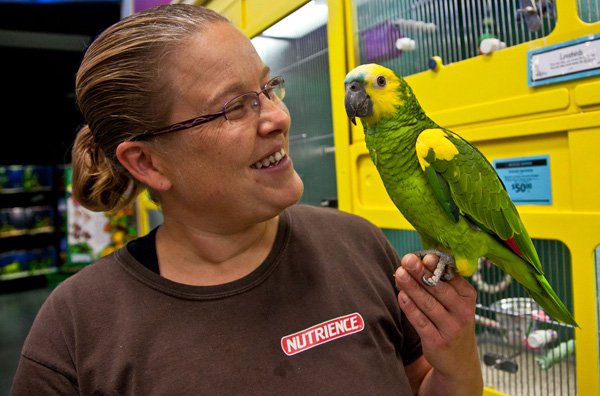 Choose Best Automatic Pet Feeders Interms Of Design, Setup, Cleaning
Choose Best Automatic Pet Feeders Interms Of Design, Setup, Cleaning
 The Parrotfinch Family
The Parrotfinch F
The Parrotfinch Family
The Parrotfinch F
 Build the Chicken Houses Like It Is Your Very Own
Build the Chicken Houses Like It Is Your Very Own
Build the Chicken Houses Like It Is Your Very Own
Build the Chicken Houses Like It Is Your Very Own
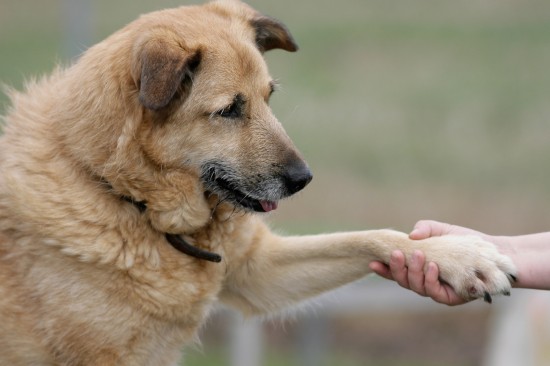 How Can You Assess Your Dog’s Quality Of Life?
How Can You Asses
How Can You Assess Your Dog’s Quality Of Life?
How Can You Asses
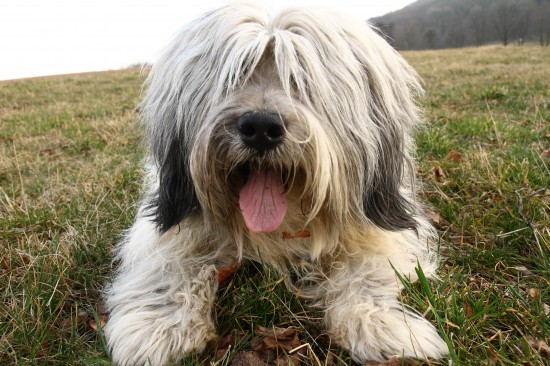 Polish Lowland Sheepdog Hereditary Health And Health Testing
Polish Lowland Sh
Polish Lowland Sheepdog Hereditary Health And Health Testing
Polish Lowland Sh
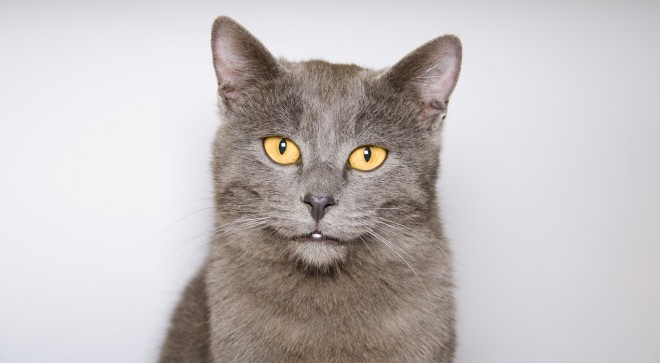 Top Tips On How To Clean Up After Your Kitty
Top Tips On How T
Top Tips On How To Clean Up After Your Kitty
Top Tips On How T
Copyright © 2005-2016 Pet Information All Rights Reserved
Contact us: www162date@outlook.com